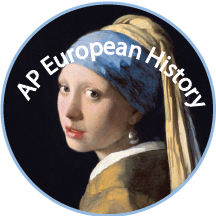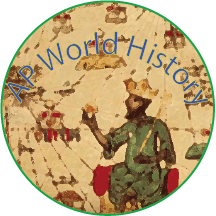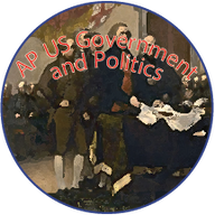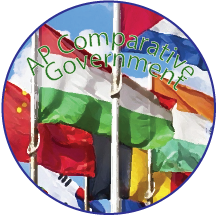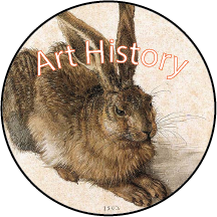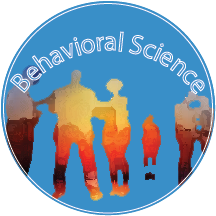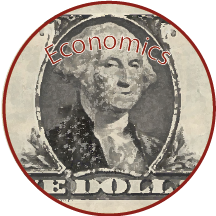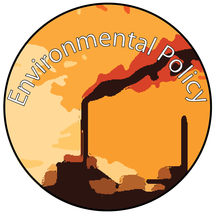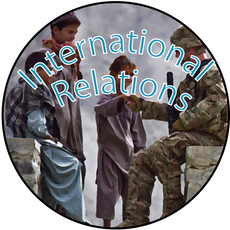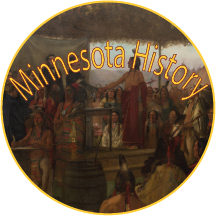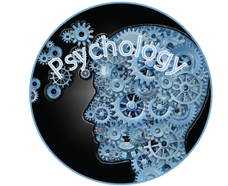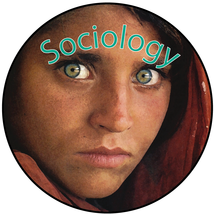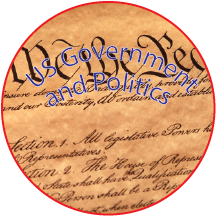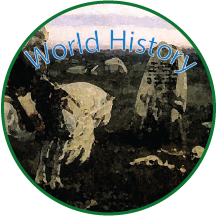Archived CoursesAfter having taught for as many years as I have I have been fortunate enough to have a wide array of experiences teaching courses. The courses included below are courses that have not been updated in quite a while. Please feel free to use materials from them as needed, unfortunately I don't have any other resources from these to share.
|
AP European HistoryAP Euro is an in-depth survey of Europe History from the High Renaissance (about 1450) up until the present era. AP classes are the equivalent of a freshmen or sophomore level university class, and are designed to challenge the students with complex concepts and strenuous workloads. The course is designed to prepare students for the AP exam; passing of which enables students to receive college credit.. The first half of the year will focus on the intellectual/political/and social history of Europe from the Renaissance until the death of Napoleon. The second half will focus on the political development from the Industrial Revolution until 2011.
|
AP World HistoryAP World History is an intensive study of Human history from the dawn of civilization, up until the modern age. Advanced Placement classes are the equivalent of a freshmen or sophomore level university class, and are designed to challenge the students with complex concepts and strenuous workloads. Upon completion of the course students will be given the chance to take the AP Test, which if they pass will qualify them for college credit. The first half of the year we will focus on the social/political/intellectual history of the World from the very beginnings of Human history up until the beginnings of the Renaissance. The second half of the year will focus on the development of the world from a factionalized and broken set of regional and individual powers, to the interconnected and co-dependent globalized World that we live in today.
|
AP US Government and Politics
This semester long course will guide students through an introductory examination of the political structures that form the foundations of the government of the United States. Through an analysis of the different ideas, beliefs, groups, and institutions students will become more familiar with the structure and function of the country's government. By examining different theoretical approaches, and examples of prior political procedures students will gain a better understanding of the methods and reasoning for the operation of the United States Government. Throughout the course of the semesters students will be examining the United States Government by examining its constitutional underpinnings, the different political beliefs and behaviors, how it is influenced by special interest groups, the institutions of the national government, the formation and implementation of public policy, and the civil rights and liberty issues that form the foundations of our government. Upon completion of the course students will be given the opportunity to take the Advanced Placement test for the possibility of earning college credit.
|
AP Comparative Government and PoliticsThe AP Comparative Government and Politics course is designed to introduce students to a variety of political institutions through examining issues such as citizen participation, governmental organization, the idea of sovereignty and the root of power, public policy, and the ways in which political and economic institutions change. The primary goal of the course is to increase understanding of the different political institutions, values, and structures of different governmental systems. Students will become more familiar with these institutions through examining case studies of Great Britain, Nigeria, Mexico, Iran, China, and Russia. This semester long course is designed to have the workload and rigor of a freshman or sophomore level college course. Upon completion of the course students will be able to take the Advanced Placement test for potential college credit. The course will emphasize critical thinking and application of knowledge with the goal that students will have a better critical perspective of the inner workings of different systems of government.
|
Art HistoryThis one semester covers the developments of artistic expressions from its first uses to contemporary artistic expression. Student will examine art’s transition from being a form of communication, to methods of personal, religious, political, and social expression. By examining different artistic movements and trends, across space and time, students will gain an understanding of the different changes in the form and function that art has undergone. Throughout the course of the semester we will be examining Architecture, and visual (paintings and photographs) pieces from Africa, the Americas, Asia, Australia, and Europe. This one credit class fulfills the Art credit and is required for the Arts Certificate.
|
Behavioral ScienceBehavioral Science incorporates the ideas of the social sciences, specifically the principles of sociology and psychology, to better understand the ideas of group dynamics, and individual behaviors. Students will utilize scientific theory and methods to examine the principles of behavior, socialization, and the incorporation of individuals, in the context of a single individual, or as part of a larger whole. By planning and conducting studies, to be complete around the local community, students will gain a better understanding of the types of interactions and learned behaviors that take place around them, and come up with methods to improve a social experience. A large emphasis will be placed on the usage of scientific theory and methods, to design and conduct social experiments with the goal of increasing awareness of social forces, and improving an experience. In doing so, students will improve their understanding of scientific research and research methods.
|
EconomicsThe goal of this one semester Economics course is for the student to demonstrate an understanding of basic economic concepts. Students become familiar with the economic systems of the world, with a focus on the economic system of the United States, and how they operate. By examining different economic systems students will be finding out how different economic systems operate and what impact they have on the people. Students will examine their roles as consumer, worker, investor and voting citizen. Topics of discussion include the Stock Market, comparative economic systems, and the impact of political and social decisions on the economy.
|
Environmental PolicyThis semester-long course examine the government of the United States, through a specific emphasis of how the government develops and establishes policies regarding the environment. The course begins with an overview of the guiding principles of the formation of the government, before examining the role of different governmental and non-governmental agencies in formulating policies and legislation. Students will also examine how the policy of the United States contrasts to international frameworks on the environment. The varying levels of government will also be examined to see how policy is implemented at state, local, national, and international scales.
|
International RelationsThe focus of this semester long course is on the process of conflict and cooperation among different states through the lens of political negotiations. Through an examination of the relationships it is possible to see how countries interact, and how those interactions can have broader impacts. The course takes a particular interest in the actions of countries like the United States, China, the European Union, and Russia, as well as the involvement of organizations like the United Nations. One of the main areas of focus will be on the international institutions that have been established, and how they are meant to bring countries together, avoid future conflicts, and provide for international political stability.
|
Minnesota HistoryThis upper-level high school survey course was designed, but never taught. Individual lessons have been used in a number of practicum lessons during my pre-service teacher training. What is included below is the entirety of my senior level social studies methods curriculum development project. I'm hoping that these resources might be helpful to anyone looking to develop a course of their own, or wishing to incorporate materials about Minnesota into their own lessons. Please feel free to contact me with any questions, I would love to help in any way towards the inclusion of more local historic connections in the teaching of history.
|
PsychologyPsychology looks at the way that human's minds operate and how our minds perceive the world around them. Psychology seeks to build an understanding of how the mind builds its own perception of itself, constructs the identity of an individual, and helps place the individual within the conscious and unconscious world. In this semester long online course students will be working through an examination of how Psychologists study the role of the individual and group dynamics, how individuals learn and develop, how individuals work as part of a larger whole, and finally how the mind seeks to interpret its own reality. Through studying Psychology students will have a better understanding of the way the mind works and develop their ability to think critically.
|
SociologySociology is essentially the study of Human behavior and Social Structures. In this one semester class we will examine social phenomenon from an academic perspective looking for patterns of social interaction and how those interactions influence human behavior. Through a variety of methods students will explore different sociological ideas from an educative perspective in order to develop their own social perspectives and critical thinking skills.
|
US Government and PoliticsThis semester long course will examine the democratic foundations, structures, and institutions of American government at local, state, and national levels. Students will study the political processes to gain understanding of the role of the individuals in the decision-making process of American government. Students will also learn about the rights and responsibilities of the citizens of the United States. By investigate American government though a variety of methods, including examining primary source documents, conducting research projects, class discussion, and written essays students will gain a deeper understanding of the function of the United States Government.
|
World HistoryIn Semester One we will examine Human History from the first nomads who roamed the earth, until the beginnings of modern civilization. We will look and the growth and development of societies and civilizations, and their influence on the course of history. By examining Asiatic, African, European, South American, North American, and Australian civilizations we will compare and contrast factors in their growth and development. By looking at historical figures and events we will also seek an understanding of how and why the world has developed to its’current state. Through out the course of the year students will be analyzing primary and secondary sources in order to expand their historical knowledge and develop necessary skills.
Second semester of World History will focus on the world since the year 1400. The world has undergone a massive transition in the modern era from a group of mostly isolated cultures spread out across the different corners of the globe, to an increasingly interconnected patchwork of states connected by languages, religions, economies, and political systems. The modern era is a tale of unification and consolidation of the world's territories into nation-states and empires By looking at historical figures and events we will seek out an understanding of how and why the world has developed to its’ current state. Throughout the course of the year students will be analyzing primary and secondary sources in order to expand their historical knowledge and develop necessary skills. |

